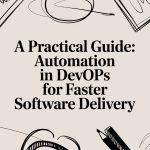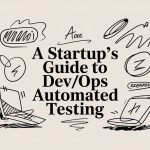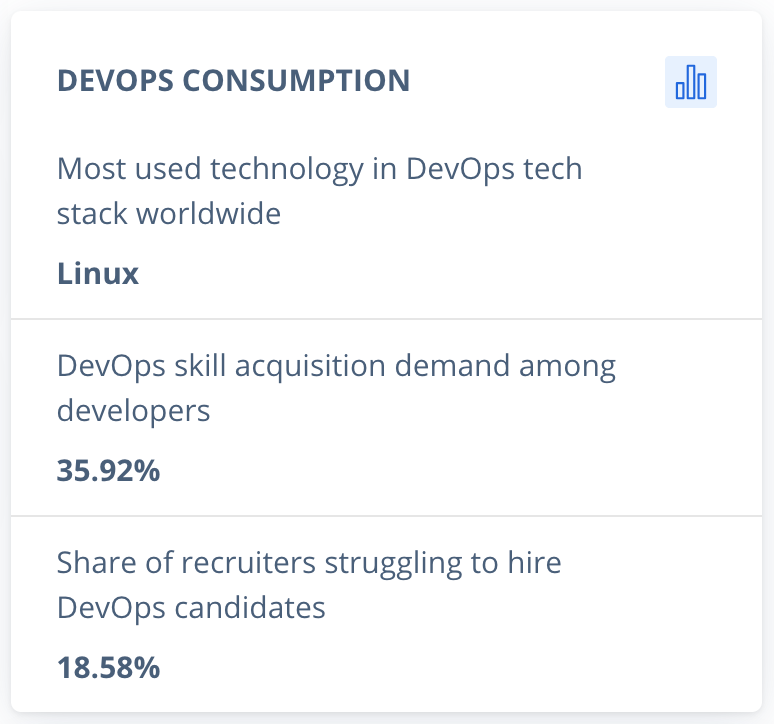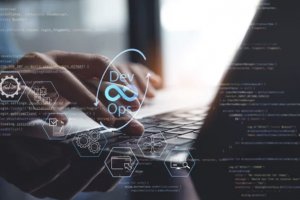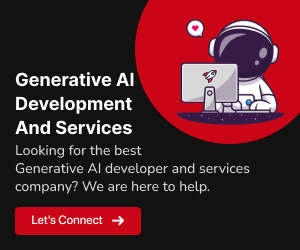
DevOps: A Brief Overview
DevOps is a methodology that brings together the traditionally separate functions of software development and IT operations. It emphasizes collaboration, automation, and a continuous feedback loop to deliver high-quality software rapidly and reliably. By breaking down barriers between development and operations, also DevOps promotes agility, shorter development cycles, and quicker problem resolution. This approach aligns development goals with business objectives, ensuring that software aligns with user needs and market demands.
The strategic integration of DevOps practices into an organization’s software development processes can yield significant benefits. Hiring dedicated DevOps developers empowers companies to effectively implement and maintain these practices, furthermore resulting in improved efficiency, enhanced collaboration, and a competitive edge in the dynamic business landscape. As the software industry continues to evolve, embracing DevOps and enlisting specialized experts will prove to be a crucial step toward success.
Benefits of Hiring DevOps Engineers
DevOps engineers are the driving force behind streamlined development, continuous integration, and efficient operations. By bringing their expertise to the table, your business can enjoy accelerated development cycles, reduced errors, and enhanced collaboration between departments. This section will delve into the key benefits of integrating DevOps engineers into your team, furthermore highlighting the transformative impact on your software delivery process.
These experts bring a unique blend of technical expertise and a holistic view of the software development lifecycle. Their ability to design, implement, and also manage automated pipelines streamlines the code integration, testing, and deployment processes. By eliminating manual bottlenecks and minimizing human error, dedicated DevOps developers ensure smoother and also more predictable release cycles.
Qualities to Consider in a DevOps Engineer
The ideal DevOps engineer possesses a unique blend of technical prowess and soft skills. Beyond technical expertise, look for individuals with exceptional problem-solving abilities, adaptability, and effective communication skills. This combination ensures that they can not only navigate complex technical landscapes but also collaborate seamlessly with cross-functional teams.

In the intricate realm of software development and operations, the role of a DevOps engineer holds paramount importance. DevOps engineers are the architects behind the seamless integration of development and IT operations, ensuring the rapid delivery of high-quality software. When seeking to hire a DevOps engineer, several key qualities come into play, making the selection process a critical step towards successful implementation. Below are some essential qualities to consider:
1. Technical Expertise and Problem-Solving Skills:
A top-tier DevOps engineer possesses a deep understanding of various programming languages, automation tools, and cloud technologies. This technical prowess enables them to create and manage automated deployment pipelines, configure infrastructure as code, and troubleshoot complex issues effectively. Their ability to analyze and resolve intricate technical challenges ensures the reliability and also stability of the software delivery process.
2. Collaboration and Communication Skills: DevOps is fundamentally about collaboration between development, operations, and QA teams also. Effective communication skills are indispensable for a DevOps engineer to bridge gaps between these groups. Clear and concise communication fosters understanding and cooperation, also ultimately resulting in smoother development cycles and timely software releases.
3. Continuous Learning and Adaptability: Furthermore the technology landscape is in a constant state of flux, with new tools and methodologies emerging regularly. A proficient DevOps engineer stays up-to-date with the latest trends, actively seeks out new tools, and adapts their approach as needed. This commitment to continuous learning ensures that the organization remains competitive and capable of leveraging cutting-edge practices.
4. Automation Mindset: Automation lies at the heart of DevOps. An adept DevOps engineer strives to automate routine tasks, enabling the team to focus on more strategic initiatives. This mindset not only speeds up processes but also minimizes human error, leading to consistent and predictable outcomes.
Successful Hiring Process for DevOps Engineers
Crafting a successful hiring process is a multifaceted endeavor that involves strategic planning and careful execution. Start by defining your project requirements, setting clear expectations for the role and responsibilities. Determine your budget and project duration to align with market rates and your business goals. Choose the right hiring model – full-time, part-time, contract, or hybrid – that suits your specific needs.

Hiring DevOps engineers requires a strategic approach to ensure that the selected candidates possess the necessary skills and qualities for effective software development and operations integration. Here is a tailored hiring process designed to attract, evaluate, and also select the best DevOps talent:
1. Job Description Crafting: Begin by crafting a comprehensive and accurate job description that outlines the role’s responsibilities, expectations, and required qualifications. Highlight the organization’s commitment to DevOps practices and its impact on the software development lifecycle. This description also serves as the first point of contact for potential candidates.
2. Skill Assessment and Screening: Create an initial screening phase where candidates submit their resumes or applications. To streamline the screening process, include specific questions that gauge their technical expertise, relevant experience, and alignment with DevOps principles. This phase also helps shortlist candidates who meet the basic qualifications.
3. Technical Evaluation: Conduct technical assessments or coding challenges that mirror real-world DevOps scenarios. These evaluations should assess candidates’ ability to write automation scripts, manage infrastructure as code, and also troubleshoot common problems. Consider using platforms that allow candidates to showcase their practical skills.
4. Behavioral and Soft Skills Interviews: The next step involves conducting interviews to evaluate candidates’ soft skills, problem-solving abilities, teamwork, and communication. DevOps engineers interact closely with various teams, so their interpersonal skills are crucial. Present hypothetical scenarios to gauge their approach to collaboration and conflict resolution.
5. Practical Scenario Assessment: Pose real-world scenarios that DevOps engineers are likely to encounter in their role. Ask candidates to propose solutions for scaling infrastructure, handling system failures, and furthermore optimizing performance. This assessment reveals their ability to apply DevOps concepts practically.

Outsourcing DevOps Engineers
When evaluating the option of outsourcing DevOps engineers, organizations can unlock a host of benefits that contribute to streamlined software development and operational excellence. Outsourcing allows businesses to tap into a global pool of talent, accessing skilled DevOps engineers with diverse expertise and specialized knowledge. This strategic move often proves cost-effective, as it eliminates the need to invest in extensive in-house training and infrastructure setup.
Outsourced DevOps engineers bring their proficiency to the table, swiftly setting up automation pipelines, managing cloud infrastructure, and optimizing processes. This accelerates project timelines and enhances product delivery while allowing your core team to focus on strategic initiatives. Furthermore, outsourcing offers flexibility in resource allocation – you can scale your DevOps team up or down based on project requirements. With the right outsourcing partner, you can seamlessly integrate external expertise into your development cycle, fostering innovation, and staying ahead in today’s competitive market.
Cost of Hiring a DevOps Engineer
When considering the cost of hiring a DevOps engineer, it’s essential to recognize the value they bring to your organization’s software development and operations processes. DevOps engineers play a pivotal role in driving efficiency, collaboration, and continuous improvement. The initial investment in hiring a skilled DevOps engineer may vary based on factors such as experience level, location, and the specific responsibilities you require. However, this upfront cost is often outweighed by the long-term benefits they provide.
DevOps engineers streamline development cycles by automating processes, furthermore implementing continuous integration and deployment pipelines, and optimizing infrastructure. Their contributions lead to faster time-to-market, reduced downtime, and enhanced product quality. By promoting collaboration between development and operations teams, furthermore DevOps engineers pave the way for cross-functional synergy, which translates into improved efficiency and innovation. Investing in a proficient DevOps engineer aligns with your organization’s commitment to staying competitive in a rapidly evolving technology landscape.
Also read: Top DevOps service companies in San Francisco, USA
Remote DevOps Engineer Hiring
Source: Statista
To ensure the success of remote DevOps engineer hiring, certain factors should be taken into account. Firstly, clearly define the roles, responsibilities, and expectations for remote team members. This includes outlining project objectives, deliverables, and communication channels to facilitate smooth collaboration. Secondly, utilize comprehensive interview processes to assess technical skills, cultural fit, and remote work capabilities. Also practical assessments and scenario-based questions can provide insights into a candidate’s problem-solving abilities and adaptability.
Thirdly, invest in robust communication tools and platforms. Remote DevOps engineers need seamless access to video conferencing, instant messaging, and project management tools to stay connected with the team and ensure clear communication. Fourthly, establish a structured onboarding process that familiarizes remote hires with the organization’s culture, processes, and tools. Assign a mentor or buddy to guide them through their initial remote work experience.
Where to Hire DevOps Engineers in USA?
1. Geekyants

Research. Collaborate. Build.
GeekyAnts is a design and development studio that specializes in building solutions for web and mobile that drive innovation and transform industries and lives. We hold expertise in state-of-the-art technologies like Next.js, React Native, Flutter, Node, GraphQL and more.
- Team Size: 250 – 999
- Hourly Rate: $25 – $49
- Location: California, USA
- Average Review Rating: 4.9
- Service Lines: Mobile App Development (50%), Web Development (40%), UX/UI Design (10%)
- Clients: Enterprise (>$1B) (60%), Midmarket ($10M – $1B) (30%), Small Business (<$10M) (10%)
- Application Platforms: Amazon (30%), Google app engine (25%), Heroku (25%), Azure Platform (20%)
Visit Website Contact Us
2. Algoworks
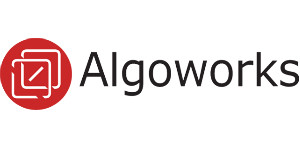
Simplifying technology. Smartly. Disruptively. Globally.
Algoworks is a trusted DevOps consulting company renowned for its comprehensive suite of services. With expertise in automation, integration, and development, they enable businesses to optimize their operations effectively. Their experienced team crafts tailor-made solutions, ensuring a seamless transition to DevOps methodologies. Visit their website for more information.
- Team Size: 500-1k
- Hourly Rate: $25 – $49
- Location: California, USA
- Average Review Rating: 4.7
- Service Lines: Mobile App Development (80%), CRM Consulting and SI (20%)
- Mobile Focus: Games (65%), Other enterprise apps (25%), Social (10%)
- Clients: Enterprise (>$1B) (50%), Midmarket ($10M – $1B) (40%), Small Business (<$10M) (10%)
Visit Website Contact Us
3. XenonStack

A Stack Innovator
XenonStack specializes in product engineering and technology services, offering advanced digital enterprise solutions. Leveraging DevOps, Big Data Engineering, Data Analytics, and more, they empower businesses to transform their operations and harness the potential of data assets. Their expertise in cloud consulting, including AWS, Google Cloud, and Azure, makes them a preferred DevOps consultancy.
- Team Size: 10-250
- Hourly Rate: $25 – $49
- Location: California, USA
- Average Review Rating: 4.5
- Service Lines: BI & Big Data Consulting & SI (25%), Cloud Consulting & SI (25%), AI Development (15%), IT Managed Services (15%), Cybersecurity (10%), Enterprise App Modernization (10%)
- Clients: Midmarket ($10M – $1B) (55%), Enterprise (>$1B) (25%), Small Business (<$10M) (20%)
- Cloud Computing Focus: Natural Language Processing (35%), Machine Learning (30%), Cognitive Computing (20%), Chatbots & Conversational AI (15%)
Visit Website Contact Us
4. Contus

Gateway of Digital
Contus is a premier USA-based DevOps company that excels in providing innovative solutions. Their adept team harnesses cutting-edge technology to enhance development and operations, ensuring accelerated product delivery. With a client-centric approach, they furthermore tailor DevOps strategies to individual business needs, showcasing wide-ranging expertise across various industries.
- Team Size: 250-500
- Hourly Rate: $25 – $49
- Location: Atlanta, USA
- Average Review Rating: 4.2
- Service Lines: IoT Development (30%), Mobile App Development (20%), Web Development (20%), AR/VR Development (10%), Custom Software Development (10%), Wearable App Development (10%)
- Cloud Computing Focus: AWS (100%)
- Clients: Midmarket ($10M – $1B) (50%), Small Business (<$10M) (30%), Enterprise (>$1B) (20%)
Visit Website Contact Us
5. Mission Cloud

Accelerate your business and achieve your goals
Mission Cloud is dedicated to providing cloud-based DevOps solutions that empower businesses in the digital age. They furthermore help organizations embrace agile methodologies and automate software delivery pipelines, driving efficiency and innovation. With certified DevOps engineers and a deep understanding of cloud platforms like AWS, Azure, and GCP, Mission Cloud stands out as a leader in the field.
- Team Size: 10-250
- Hourly Rate: $100 – $199
- Location: Los Angeles, USA
- Average Review Rating: 3.9
- Service Lines: Cloud Consulting & SI (25%), AI Development (20%), IT Managed Services (20%), IT Strategy Consulting (20%), BI & Big Data Consulting & SI (15%)
- Cloud Computing Focus: Machine Learning (100%), Chatbots & Conversational AI (30%), Cognitive Computing (30%)
- Clients: Midmarket ($10M – $1B) (50%), Small Business (<$10M) (30%), Enterprise (>$1B) (20%)
Visit Website Contact Us
Whether you’re looking to optimize your IT operations, transform your business processes, or enhance development and delivery, furthermore these top DevOps consulting companies in the USA have the expertise to meet your needs. By leveraging their cutting-edge solutions, comprehensive knowledge, and proven track records, you can navigate the complex landscape of modern technology with confidence. DevOps has become an essential paradigm in achieving operational excellence and accelerating digital transformation. The specialized services offered by these companies span a wide range of industries and requirements, also ensuring that your organization can effectively implement DevOps methodologies that fit your unique challenges.
Conclusion
By carefully crafting job descriptions, assessing technical skills, and evaluating cultural fit, organizations can ensure they hire DevOps engineers who align with their goals and values. The investment in these experts pays off in the form of streamlined processes, automated pipelines, and also improved system performance.
In conclusion, whether building an in-house DevOps team, collaborating with an external partner, or embracing remote capabilities, the common thread is the pursuit of efficient, collaborative, and innovative software development. The DevOps philosophy and its practitioners play a pivotal role in shaping the future of technology-driven industries, where agility, quality, and adaptability are the cornerstones of success.




